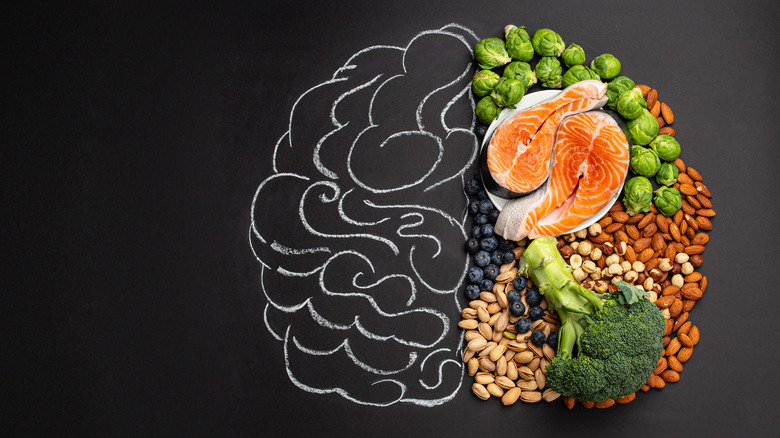Do This If You Want To Improve Your Memory
If you just realized your son's field trip permission slip was actually due yesterday, or you just can't remember the name of the woman you chatted with at the library yesterday, you might be concerned about memory loss. While memory loss can be an early sign of dementia or Alzheimer's disease, the chances are more likely that you're tired, stressed, or just have a lot going on at the moment. Although memory loss should be taken seriously, Matthew Baumgart, senior director of public policy at the Alzheimer's Association, believes that for many, memory loss is not a surefire indication that those individuals will go on to develop dementia (via WebMD).
Fortunately, there are plenty of simple steps we can take to improve our memory.
First, get organized. A cluttered home environment and messy workplace are going to make it a lot harder to remember where you left your phone or keys. Taking a cue from Marie Kondo and tidying up your space means that your keys will always be in their designated spot — and your brain will be free to focus on other things. Keep a notebook or planner updated with appointments you need to remember and tasks that need to get done, checking them off when completed (via Mayo Clinic).
Improved sleep and diet can strengthen memory
Additionally, be sure you're getting enough sleep. A 2018 study in the Journal of Sleep Research showed that even just one night of sleep loss is enough to impair normal memory function. While we sleep, the brain does the vital work of sorting and consolidating our memories, so a lack of sleep may play a roll in memory loss (via Psychology Today).
In addition to sleep, eat a brain-healthy diet. Berries of all kinds are brain-boosting fruits. Neurotherapist Mike Dow, author of "Think, Act and Be Happy," says, "Eating berries is associated with better memory. It's believed that the antioxidants in berries cross the blood brain barrier. This keeps toxins out, but can also keep certain antioxidants from reaching the brain." And it's not just berries. Leafy green vegetables, olive oil, and fish also top the list of memory-supporting foods (via Prevention).
Although easier said than done, stop multi-tasking. Sure, sometimes it can't be helped. But our obsession with multi-tasking is taking a toll on our memory. Kevin Madore, a Stanford postdoctoral fellow in the Stanford Memory Lab, says, "The ability to single-task is really important and can help your memory. People say they're great multitaskers: 'I can do 17 things at once.' And that's not really how the brain works" (via Stanford Magazine). The better we can focus on one thing at a time, without distraction, the more likely that we'll actually be able to recall it later.


